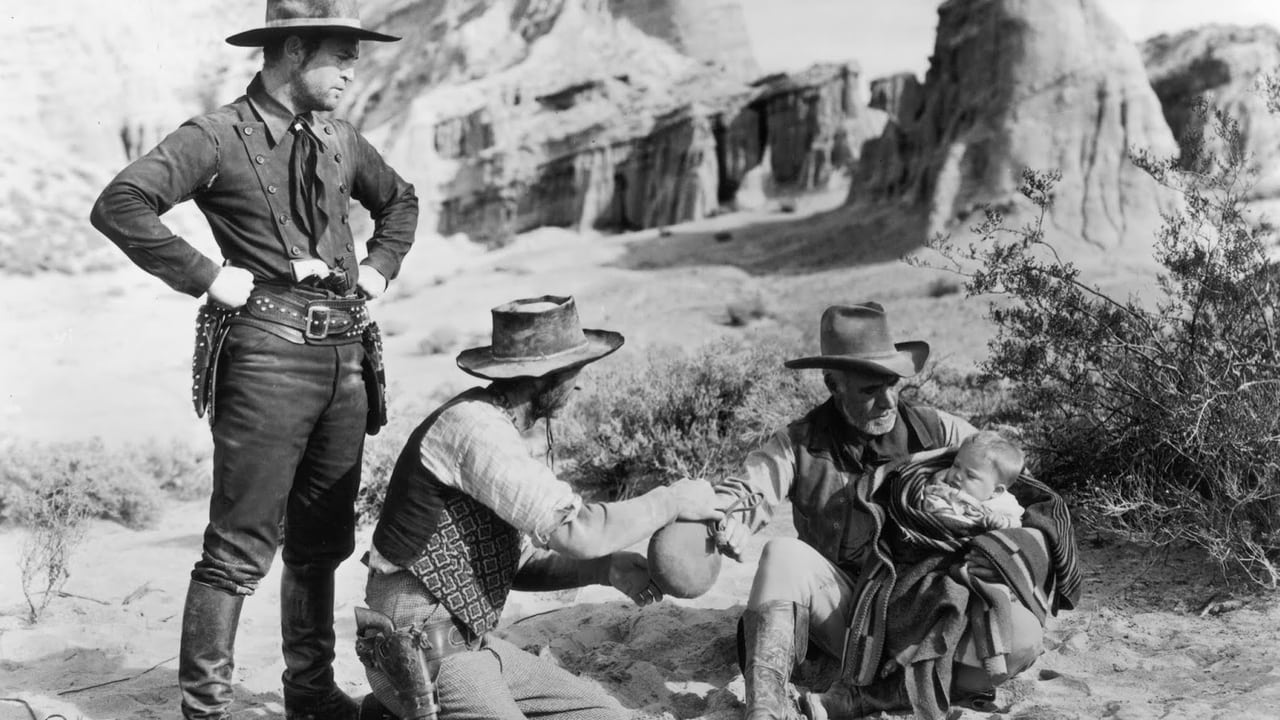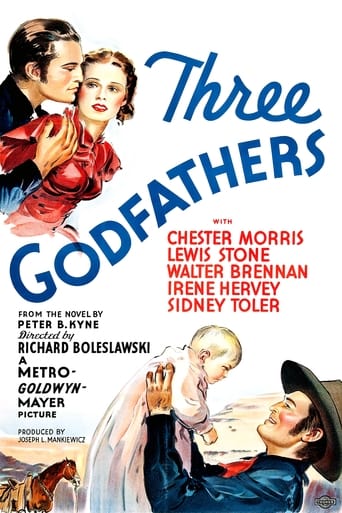PlatinumRead
Just so...so bad
Beystiman
It's fun, it's light, [but] it has a hard time when its tries to get heavy.
Nicole
I enjoyed watching this film and would recommend other to give it a try , (as I am) but this movie, although enjoyable to watch due to the better than average acting fails to add anything new to its storyline that is all too familiar to these types of movies.
Abegail Noëlle
While it is a pity that the story wasn't told with more visual finesse, this is trivial compared to our real-world problems. It takes a good movie to put that into perspective.
tthomas-38
I watched this a very long time ago (sometime in the early 60's, and I think I was about 10 years old). It made me cry at the end, and I recall feeling embarrassed about that, but I always remembered it, and when I joined Netflix, I figured I'd track it down. I knew it was black-and-white, so when I started watching the John Ford, John Wayne version, I realized it wasn't the same film.Sure enough, the characters and the ending were nothing like this one, the original (talkie, since I gather there was also a silent version that preceded this one). Even though it was over 40 years ago, I vividly remember the scene at the waterhole, and the last of the bad men stumbling into that dusty little town on the edge of the desert. I didn't understand it fully at the time, but it was probably my first exposure to the idea that good and evil can coexist in the human soul.
Michael_Elliott
Three Godfathers (1936) *** (out of 4) Extremely warm Western has three ruthless outlaws (Chester Morris, Lewis Stone, Walter Brennan) robbing a bank at Christmas time and then heading off into the desert. While on their getaway they come across a dying mother and her young child so the men take the child to try and get it to some place safe. After a bit of bad luck the three find themselves nearing death themselves and to get the baby home it might cost them their lives. I'm sure most people are familiar with the John Ford vehicle with John Wayne but this version is so much better for numerous reasons. The biggest reason is that this version is a lot darker and more grittier than the Ford film, which always seemed a tad bit too cute to me. This film has a lot of dark moments and depends on religion a lot more as well. There's also some nice humor scattered through this film including a great bit with a Santa Clause. Both Morris and Brennan are very good in their roles with Morris giving a very good turn as a really mean guy. Stone steals the film as the older man who tries to talk the other two into having some good in their hearts. Sidney Toler has a small supporting role.
dave94703
My god, one of the characters is dying of lung cancer, reading Schopenhauer, and quoting King Lear: what a western! I bet both the novelist AND the scriptwriter were terminal.No-name actors, no-name director, you can see why it qualified so soon for a John Wayne remake. The film medium is versatile; there's room for all kinds of statements. The uniformity of output that characterizes films like the Wayne version was a function of the blockbuster-or-nothing mentality of the era, a mentality we're far from free of. This isn't a normal Hollywood-style movie, but an essay that happens to employ the medium of film. The selfless moments and philosophical asides are the stars, the action the backdrop. I enjoyed it tremendously.
boblipton
Not as well known as the 1948 John Ford version, this one does not spoon feed the issues to the viewer. Harsh, uncompromising and utterly devoid of false bonhomie, Boleslawski made this at almost the same time as the screwball classic, THEODORA GOES WILD.

